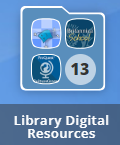- early childhoodGrades Pre-K, PPCD
- elementaryGrades K-5
- middleGrades 6-8
- highGrades 9-12
- academy programsGrades K-12
- other learning centers
- Aldridge
- Andrews
- Barksdale
- Barron
- Bethany
- Beverly
- Boggess
- Brinker
- Carlisle
- Centennial
- Christie
- Daffron
- Davis
- Dooley
- Forman
- Gulledge
- Harrington
- Haun
- Hedgcoxe
- Hickey
- Hightower
- Huffman
- Hughston
- Hunt
- Jackson
- Mathews
- McCall
- Meadows
- Memorial
- Mendenhall
- Miller
- Mitchell
- Rasor
- Rose Haggar
- Saigling
- Schell
- Shepard
- Sigler
- Skaggs
- Stinson
- Thomas
- Weatherford
- Wells
- Wyatt
- Home
- Elementary Academics
- Home Resources, Grades K-5
- Kindergarten
-
Kindergarten
This page is for students who are currently in Kindergarten or have just completed Kindergarten.
To view a list of Digital Tools that are available during the summer, click on this Elementary Summer Technology document. These tools can be accessed via your student's Webdesk.
-
Family Activities
Literacy
Math
Science
Social Studies
-
- Read High Frequency Words.
- Explore the relationship between letters and sounds and practice identifying upper and lower case letters.
- Read 20+ minutes a day.
- While reading or after reading, write/draw:
- An important part of the text.
- A connection that you made to the text.
- A question about the text.
- The problem and resolution of the story (literary text only - fiction, poetry, drama).
- The central idea and details to support it (informational texts only - nonfiction, persuasive).
- A conclusion that can be drawn from the text.
- Something that could be added to the text to extend its message.
-
- Sorting and Counting - Have your child collect, sort, and organize data into two or three categories using items around the home (pasta, paperclips, coins, toys). Students can practice reciting numbers to at least 100 by ones and tens, beginning with any given number.
- Environmental Shape or Pattern Hunt - Give students a list of two and three dimensional figures (circles, triangles, rectangles, squares, cylinders, cones, spheres, and cubes) for students to find on a scavenger hunt in and around the home. Have students sort the regular and irregular two- and three-dimensional figures.
- Real World Problems - Give your child a real world situation from home that requires them to count. For example, "I have 5 bananas and 4 apples. How many pieces of fruit are there altogether?"
- Shopping and Money - Grab a handful of coins (penny, nickel, dime, and quarter) and have students identify each. Have students sort the coins into different categories.
-
- Create a question about an organism, object, or event that can be observed in the natural world. It may sound something like:
- Does the color of a crayon affect its melting rate?
- Do oranges float or sink in water?
- Plan and conduct a simple investigation to answer your question.
- Be sure to make observations and collect data.
- Record and organize your data using pictures, numbers, and/or words.
- Write about what you learned and new questions that you have.
- Research or test your new questions.
-
- Make daily calendars and timelines
- Look through family albums, photos, and/or artifacts and discuss what students see and know
- Discuss community helpers (firefighters, police officers, hospital staff)
- Share age-appropriate articles and newspapers and discuss what you notice
-
All Things Digital
All Content
-
Library Digital Resources

- Access Library Digital Resources folder via tile in Webdesk.
- Find read alouds, encyclopedias, Nat Geo kids, and other research resources.
- Curated list of Summer Resources: K-5 Summer Library Digital Resources
Seesaw

- Access Seesaw Official via tile in Webdesk.
Skills:
- An interactive learning platform across all content areas, including digital citizenship and computer science.
- Students create, reflect, share, and collaborate.
- The platform is also a communication tool between school and home, where connected families can view student work and send messages to the teacher.
- Any text written in Seesaw can easily be translated into 100+ languages by both teachers and families.


